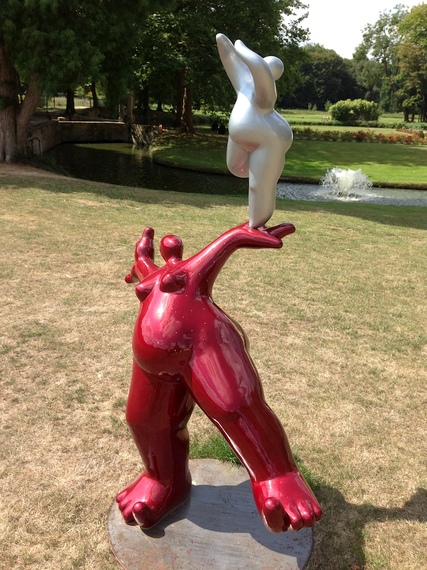1.Almost no one makes it out of childhood without baggage, and many of us are using our partners to work out our leftover issues.
2.Divorce ends relationships, not problems. So we take our stuff with us and keep attracting people who can help us resolve it.
3.So divorce may not be the best answer, since getting rid of our partners doesn't get rid of our problems.
4.Relating is like riding an elevator: If we don't do something different, such as select a new number, the doors will open and we'll just get out on the same floor.
5."Difficult" relationships are about self-love and not about our partners.
6.Our partners aren't broken, and it's not our job to fix them. Only they can fix their problems. Our job is to stay supportive.
7.Conflict is normal, so we need a strategy for dealing with it without coming unglued, especially in front of our children.
8.We can still say Yes to people while saying No to their choices.
9.When life's stressful, it's easy to blame our partners for what's "wrong" with our lives, even though it's never anyone's fault, including ours.
10.Everyone is right from his or her perspective, which means no one is wrong. So criticizing and blaming need to be off-limits. Try arguing without saying "you."
11.We're the only ones responsible for our emotions and reactions, so it's not appropriate to make people wrong so that we can justify our outbursts.
12.If we need to vent, we can say to our partners: "Can you listen to me? I'm not looking for a solution. I just need to unload." If we get a green light, it's our job to safeguard everyone involved. If the answer's No, we need to find a different outlet.
13.We've set causes in motion, and we're experiencing the results, so our problems are not originating outside of us. And whatever our partners are giving us is what we believe we deserve.
14.There will always be plenty of evidence to prove whatever we believe is true - even that it's all our partners fault - because our lives are the result of whatever we believe.
15.When we see our partners' worst, it's also active in us and they're mirroring it for us.
16.Our predictable responses keep our partners treating us in a predictable manner. So if we want people to act differently toward us, it begins by acting differently ourselves. Until we change, nothing will change.
17.Making a conscious decision to stop being triggered by what our partners say and do will deactivate our buttons and give us back our power. And if we change our usual response, our partners will also change their behavior.
18.Our partners can't affect us emotionally until we've chosen what to believe about them and their behavior. And whatever words we use to describe them, they can't be anything else for us, because we can only experience what we believe about them. So don't keep confirming, in thoughts or words, what you don't want.
19.When disruptive energy comes at us, it helps to focus on the cause rather than whether we should react with the same energy, returning anger for anger, etc.
20.The opposite of anger is understanding, which means focusing on why our partners do what they do - because why people do what they do matters more than what they do.
21.When our partners lose it, the most important issue is their need to be supported. So it's our job to stay calm and supportive, protecting their self-esteem and allowing them to save face.
22.Love means accepting our partners as they are and making an effort to understand them, to stand under them - and providing them an ideal for change, without needing them to change.
23.We draw the best from our partners by believing the best about them, knowing that they'll become whatever we decide to see.
24.Expressing appreciation does more than anything else to create positive change in our relationships.
25.The best way to show our partners how to treat us the way we want is to be an example of what we want.
You can read more of Grace de Rond's posts on her blog at gracederond.com. Plus you can follow her on Facebook and Twitter.
